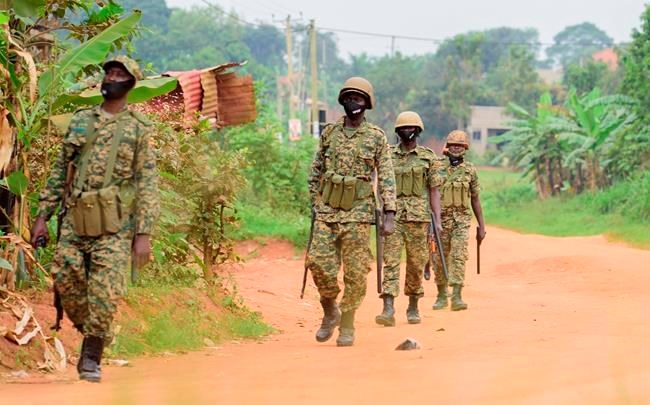OTTAWA — The Canadian government is “deeply concerned” about the political situation in Uganda but says it has no plans to stop deploying a military aircraft to the African nation, where it has been helping different United Nations peacekeeping missions.
Uganda has been on edge following presidential elections last week that saw longtime president Yoweri Museveni declared the winner despite opposition allegations of fraud and other electoral violations.
Security forces have since put Museveni’s main rival Robert Kyagulanyi, a popular singer better known as Bobi Wine, under house arrest, while electoral commission officials have acknowledged that results from 1,000 polling stations had not been counted.
Museveni has been president since 1986 and met Prime Minister Justin Trudeau in New York in September 2017 and discussed the COVID-19 pandemic with Trudeau by phone last May. He has denied allegations that he stole the election.
Canada is nonetheless calling for investigations into reports of election irregularities and violations, Global Affairs Canada spokeswoman Christelle Chartrand said, and for “Ugandan authorities to grant immediate freedom of movement to opposition candidates.”
“Canada is deeply concerned by the serious restrictions exhibited during Uganda’s election, including the ongoing partial internet shutdown by the government of Uganda, and restrictions on the freedom of peaceful assembly, association, and expression,” she added.
Wine has called for the U.S. and other donors to suspend aid contributions to Uganda, saying they are propping up Museveni’s regime.
Canada provides assistance to the Ugandan people through charities and international organizations such as the UN, Global Affairs spokeswoman Patricia Skinner said, which includes helping 1.4 million refugees in Uganda who have fled from neighbouring countries.
Canada does not provide direct financial support to the Ugandan government, Skinner said, adding: “Canada continues to monitor the situation and its impacts on our programs.”
Even as Canada raised concerns about the political situation in Uganda, the Department of National Defence says there is no plan to stop the occasional deployment of a Canadian military plane there in support of UN peacekeeping efforts in the region.
Defence Department spokesman Daniel Le Bouthillier says the arrangement, which involves a CC-130 Hercules transporting troops and equipment from the central Ugandan city of Entebbe to different UN missions, is with the UN and not the Ugandan government.
“Canada is in its second year of deploying cross-mission tactical airlift support on an episodic basis to UN missions in the DRC and South Sudan from the UN Regional Service Centre Entebbe, in Uganda, to help fulfil the transportation needs of UN missions,” he said.
“This support is an agreement between Canada and the UN, not Canada and Uganda. Canada does not pay any fees in connection with providing the UN with tactical airlift support out of Entebbe under Operation Presence.”
The Hercules aircraft is based at Entebbe for about 15 days every three months and was one of Trudeau’s signature promises during a major peacekeeping summit in Vancouver in November 2017.
This report by The Canadian Press was first published Jan. 19, 2021.
—With files from The Associated Press.
Lee Berthiaume, The Canadian Press




